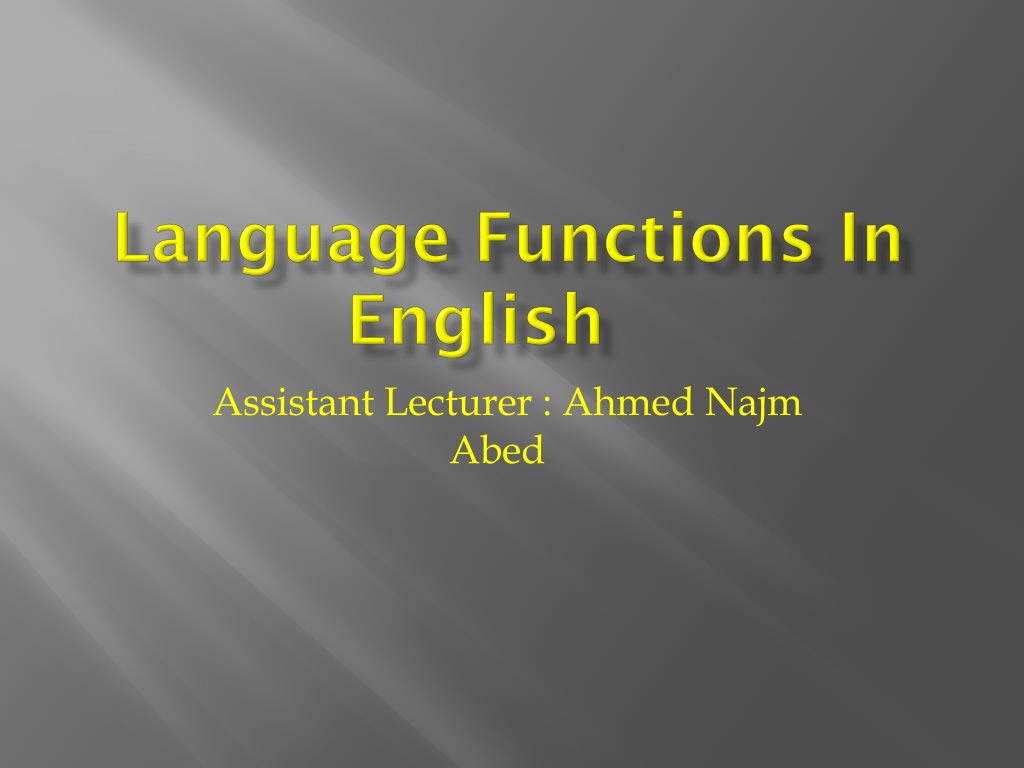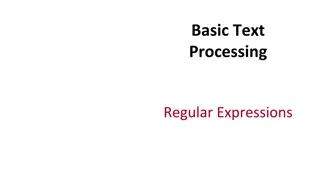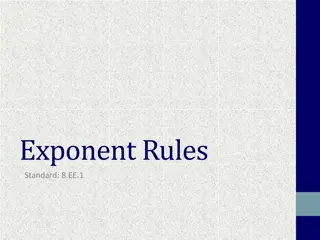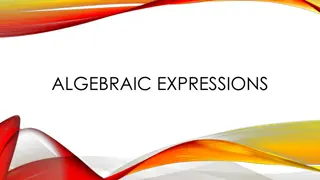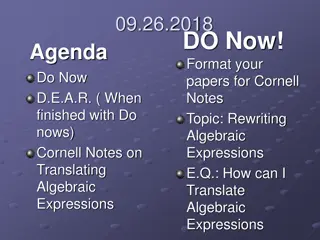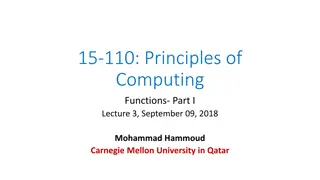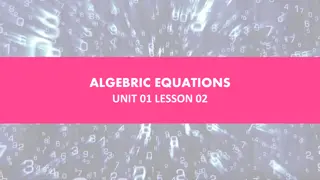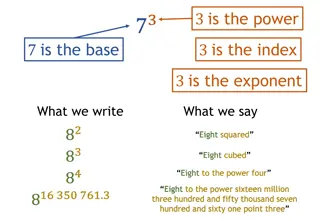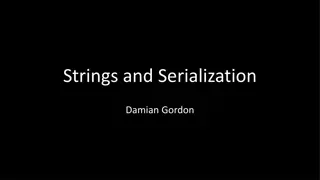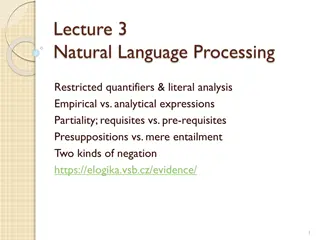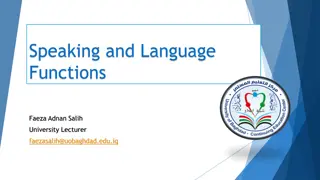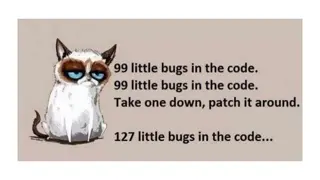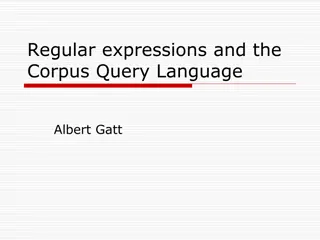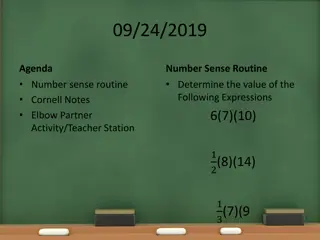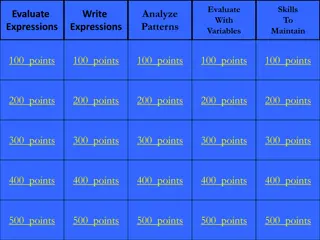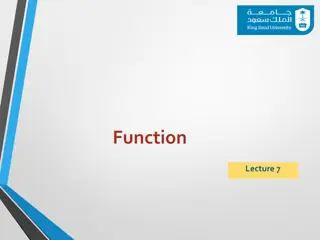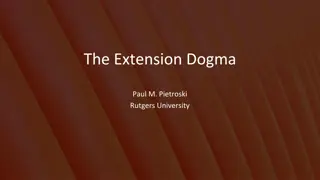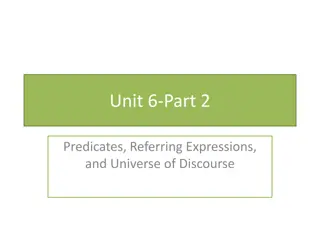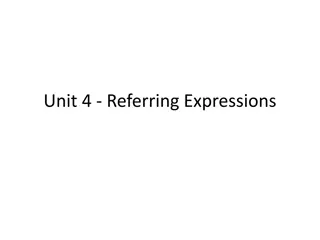Language Functions and Expressions
Explore the different aspects of language by delving into grammatical descriptions and functional expressions. Discover how language is used for communication, agreement, disagreement, expressing preferences, and introductions. Dive into the nuances of expressing agreement, disagreement, making suggestions, and apologizing in English conversations.
Download Presentation

Please find below an Image/Link to download the presentation.
The content on the website is provided AS IS for your information and personal use only. It may not be sold, licensed, or shared on other websites without obtaining consent from the author.If you encounter any issues during the download, it is possible that the publisher has removed the file from their server.
You are allowed to download the files provided on this website for personal or commercial use, subject to the condition that they are used lawfully. All files are the property of their respective owners.
The content on the website is provided AS IS for your information and personal use only. It may not be sold, licensed, or shared on other websites without obtaining consent from the author.
E N D
Presentation Transcript
We can describe language by using words to talk about grammar(grammatical description). But we can also describe language by saying how it is used. This is the function of the language (functional description) . For example, I m sorry represents the function of apologizing and, Good Morning! represents the function of greeting .
In often say that they agree or disagree with each other. There are many ways of agreeing or disagreeing and the one you use depends on how strongly you agree or disagree. English conversations, people
. Agreeing "I think you're right.""I agree with you." Strong agreement "I couldn't agree with you more." you're absolutely right.""I agree entirely.""I totally agree." Partly agreeing "I agree with you up to a point, but .. That's true, but .
I'm afraid( I don't agree) . I'm afraid( I disagree) I'm afraid( I can't agree with you). I'm afraid( I don't share your opinion) . I'm not sure I agree with you.
Would you like to? I would very happy if ? We would be delighted if you ? Would you care to..? We would be pleased if you could
-Dont you ever buy things in that shop! -If you take my advice, you won t ask him for help. -Wherever you decide to eat, don t go to that restaurant! -Beware of tigers!
- Hello. My name is - Hi. I m - Nice to meet you. I m - Pleased to meet you. I m - It s a pleasure to see you. I m - May I introduce myself? I m - How do you do? My name is - Let me introduce myself. I m - I d like to introduce myself. I m
To apologize is to tell someone that you are sorry for having done something that has caused him inconvenience or unhappiness: Example , I must apologize to peter for my late arrival .
I do apologize for ... I must apologize for I apologize for . I am so sorry for .. Please, forgive me for Excuse me for ..
We make suggestions when deciding what to do with our friends, or giving them advice on what they might do in a certain situation.
Expressing regret means having a feeling of sadness about something that you did or did not do. To express regret in English, you may use many different structures. Here are some of them. I wish / if only + Past perfect : I wish I had worked harder. Regret If only I hadn't eaten so much. Regret
Form : If + past perfect + would + have + past participle Function : If I had worked hard, I would have passed the exam. (Regret) I f I hadn't eaten so much, I wouldn't have been sick. (Regret)
The modal verbs are can, could, may, might, must, shall, should, will and would. The modals are used to do things like talking about ability, making requests, and so on.
We use can to talk about someones skill or general abilities: *She can speak several languages. *He can swim like a fish. *They can t dance very well.
We use can to ask for permission to do something: Can I ask a question, please? Can we go home now? *could is more formal and polite than can : Could I ask a question please? Could we go home now?
We use could you and would you as polite ways of telling or asking someone to do something : Could you take a message please? Would you carry this for me please? Could I have my bill please? can and will are less polite: Can you take a message please ? Will you carry this for me please?
We use ( could you ) and (would you) as polite ways of telling or asking someone to do something : Could you take a message please ? Would you carry this for me please ? Could I have my bill please? can and will are less polite : Can you take a message please ? Will you carry this for me please?
We use should to make suggestions and give advice , examples : You should send an email . Advice We should go by train. Advice We use could to make suggestions : We could meet at the weekend. Suggestion You could eat out tonight. Suggestion
We use must to say that it is necessary to do something : * You must stop at a red light . * Everyone must bring something to eat .
We use can I to make an offer : Can I help you? Can I do that for you? We can also use shall I make an offer : Shall I help you with that ? Shall I call you on your mobile?
sentences in the imperative form may perform a variety of different functions : Give me that book. (Order) Pass the jam. (Request) Turn right at the corner. (Instruction) Try the smoked salmon. (Suggestion) Come round on Sunday. (Invitation)
